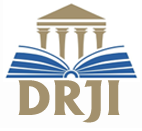MANAJEMEN KELAS BERBASIS MULTIPLE INTELLIGENCE DALAM PENGEMBANGAN BAKAT (Studi Kasus MI Pembangunan UIN Jakarta )
Abstract
The aim of this research is to describe multiple intelligence-based classroom management in the learning process, as well as to analyze its impact on student learning achievement and the development of student potential at MI Pembangunan UIN Jakarta. Based on these objectives, this research uses qualitative research with a descriptive approach. Data collection was carried out by conducting observations, interviews and documentation studies. Data analysis is carried out by collecting data, reducing data, presenting data, and drawing conclusions by reviewing the data and theories that have been built in the research. The findings of multiple intelligence-based classroom management research at MI Pembangunan UIN Jakarta can be identified through three main aspects: 1) Multiple Intelligence Research, identifying students' main or dominant intelligence in various aspects of intelligence. The MIR test results show the diversity of students' intelligence. 2) Class management based on multiple intelligence. The method for grouping students is based on the same dominant type of intelligence, creating a conducive learning climate, and classroom facilities and equipment to create a learning environment that is effective, comfortable and supports the achievement of goals. 3) Class management based on multiple intelligence in the learning process. The implementation of a multiple intelligence-based classroom management approach at MI Pembangunan develops student potential through various coaching programs and lesson plans. 4) Multiple intelligence-based classroom management in developing student talents. Talent development at MI Pembangunan UIN Jakarta through the implementation of multiple intelligence-based classroom management with three key aspects: class division based on MIR results, creating a conducive learning climate, and providing supportive classroom facilities and equipment
Keywords
Full Text:
PDFReferences
Bandura, A. (1997). Self-efficacy: The exercise of control. W.H. Freeman and Company.
Chatib, M. (2015). Sekolahanya Manusia: Sekolah Berbasis Multiple Intelligence di Indonesia. Bandung: Kaifa Mizan Pustaka.
Fleming, N. D. (1992). Teaching and Learning Styles: VARK Strategies. Christchurch. New Zealand: Neil D.
Gardner, H. (1999). Intelligence Reframed Multiple Intelligences for the 21st Century. New York: Basic Book.
Goleman, D. (1995). Emotional Intelligence: Why It Can Matter More Than IQ. Bantam: Bantam Books.
Vygotsky, L. S. (1978). Mind In Society: The Development Of Higher Psychological Processes. Amerika Serikat: Harvard University Press.
Anita indria. 2020. jurnal Multiple Intelligence, ( kajian dan Pengembangan Chatib, Munif. 2015. Sekolahanya Manusia: Sekolah Berbasis Multiple Intelligence di Indonesia. Bandung: Kaifa Mizan Pustaka
Armstrong, Thomas. 2007. Setiap Anak Cerdas: Panduan Membantu Anak Belajar dengan Memanfaatkan Multiple Intelligencenya. Penerjemah Buntaran R. Jakarta: PT Gramedia Pustaka Utama,
Abraham H. Maslow. (2013). Motivasi dan Kepribadian (Teori Motivasi denga Pendekatan Hierarki Kebutuhan Manusia). PT. PBP, Jakarta
Bandura, A. 1997. Self-efficacy: The exercise of control. W.H. Freeman and Company
Chatib, Munif. 2015. Sekolahanya Manusia: Sekolah Berbasis Multiple Intelligence di Indonesia. Bandung: Kaifa Mizan Pustaka.
Fleming, N. D. 1992. Teaching and Learning Styles: VARK Strategies. Christchurch, New Zealand: Neil D
Gardner, Howard. 1999. Intelligence Reframed Multiple Intelligences for the 21st Century. New York: Basic Book.
Goleman, D. 1995. Emotional Intelligence: Why It Can Matter More Than IQ. Bantam Books.
Gultom, Evajustika, dan Saunir Saun. 2016. The Role Of Classroom Management In CreatingAn Effective English Learning. Journal of English Language Teaching. 5(1)
Holland, J. L. 1997. Making Vocational Choices: A Theory of Vocational Personalities and Work Environments (3rd ed.). Psychological Assessment Resources.
Mahmudi, Arifka. Suci Ramadhanti Febriani, Maidatul Hasanah, Zakiyah Arifa. 2019.
Classroom Management and Arabic Learning Process Based on Multiple Intelligences in Elementary School. Journal of Arabic Language and Linguistics Education. 6(2).
Rogers, Carl. 1959. "A theory of therapy, personality and interpersonal relationships as developed in the client-centered framework.". in (Ed.) S. Koch. Psychology: A study of ascience. Vol. 3: Formulations of the person and the social context. New York: McGraw Hill.
Safitri, Maya. 2020. Strategi Multiple Intelligences Dalam Pembelajaran. 15(2), 88–103.
Shibab, Quraish. 2007. Tafsir Al-Misbah Pesan, Kesan dan Keserasian Al-Qur’an. Lentera Hati.
Sulaiman. 2017. Classroom Management: Learners’ Motivation And Organize The Learning Environment of PAI. Ar-Rainy, International Journal of Islamic Studies. Vol. 4 No. 2
Vygotsky, L. S. 1978. Mind In Society: The Development Of Higher Psychological Processes. Harvard University Press.
DOI: http://dx.doi.org/10.30821/hijri.v13i2.21970
Refbacks
- There are currently no refbacks.
Copyright (c) 2024 Hijri
Organizational Collaboration:
Hijri: Jurnal Manajemen Kependidikan dan Keislamanhas been indexed by:
Jurnal Hijri by Program Studi Manajemen Pendidikan Islam FITK Universitas Islam Negeri Sumatera Utara is licensed under a Creative Commons Attribution-NonCommercial-ShareAlike 4.0 International License.










2.png)


